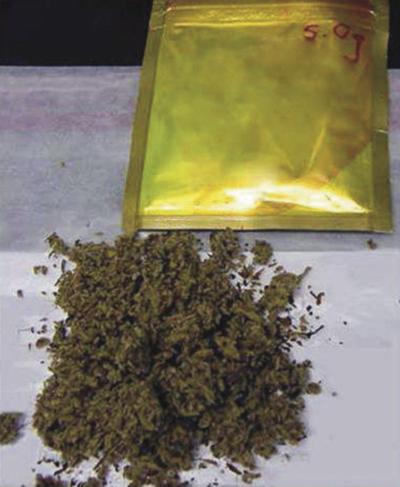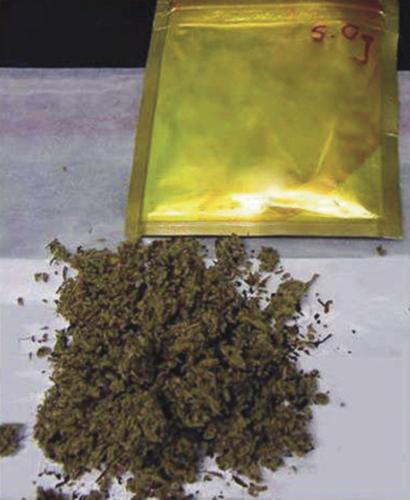Use of synthetic cannabinoids, marijuana substitutes such as Spice, has plummeted in Mississippi in the past eight months.
The decline comes after an alarming rise in reported aftereffects of synthetic cannabinoids in 2015 and the decline in reported problems comes a year after Mississippi lawmakers banned its sale, possession and trafficking.
The Mississippi law came as a response to a state-wide outbreak that a Mississippi Department of Health report called, "the largest recorded U.S. outbreak of adverse events related to synthetic cannabinoids."
In one April weekend of 2015, the University of Mississippi Medical Center's emergency room treated more than 30 people who overdosed on synthetic cannabinoids.
April and May of 2015 alone saw 20 emergency room visits linked to the use of synthetic cannabinoids in Lauderdale County. During the outbreak, hospitals state-wide admitted more than 1,200 patients because of Spice, according to the report from the Mississippi Department of Health.
Three weeks ago, a Lauderdale County jury found Maged Maurthanna Saleh "Mike" Qasoon guilty of knowingly selling the illegal Schedule I controlled substance known as Spice. Qasoon sold 7.980 grams to a confidential informant for $200.
Qasoon sold the drug only 45 days after lawmakers outlawed the substance. According to the bill, selling 10 grams or less could earn up to a three-year sentence and a $3,000 fine. Circuit Judge Justin Cobb sentenced Qasoon to three years with a $1,500 fine, along with other fees and assessments.
According to Deloras Lewis, of the Mississippi Bureau of Narcotics, however, only eight of the bureau’s 1,593 total cases in the last eight months involved synthetic cannabinoids. In February, March and June of this year, the bureau encountered three possession cases, one for each month, in Lauderdale County, totaling half of the six total possession cases statewide. Last year, seven of the bureau's 60 encounters with synthetic cannabinoids occurred in Lauderdale.
Synthetic cannabinoids, so named because of their marijuana-like characteristics, arrived to the United States sometime around 2008. Unlike marijuana, synthetic cannabinoids are manufactured, not "natural," and created by spraying chemicals on plant material that imitate the effects of marijuana, according to a fact sheet from Drug Policy Alliance earlier this year.
Attracted by the ease of ordering Spice online, users overlook the drug’s reputation for emergency room visits, links to kidney failure and side effects such as seizures and death. The reactions vary widely because of different manufacturers and inconsistent recipes, meaning users never know what they’ll get or how they’ll react, according to a USA Today report in 2015.
Until the legislature caught up to the drug, Spice was sold over-the-counter as a "legal" high. Though Mississippi outlawed Spice, and other synthetic cannabinoids, in 2015, synthetic cannabinoid dealers can still market themselves online as an alternative, cheap and easily accessible high.
"It causes a lot higher of a high than what you get with marijuana," said Greg Lea, a East Mississippi Drug Task Force major. He added that most Spice users ranged from age 15 to 24. "We're seeing more use of Spice among them (than other age groups)."
Users buy Spice in amounts as small as 2-4 grams and side effects include hallucinations and extreme agitation. The task force encountered some over-the-counter sales in the past, but most traffic comes from the internet now, according to Lea.
Because of their relatively low occurrence, however, the task force does not prioritize Spice and other synthetic cannabinoids.
“Right now with such an influx of meth that would be our number one thing,” Lea said.













Commented
Sorry, there are no recent results for popular commented articles.